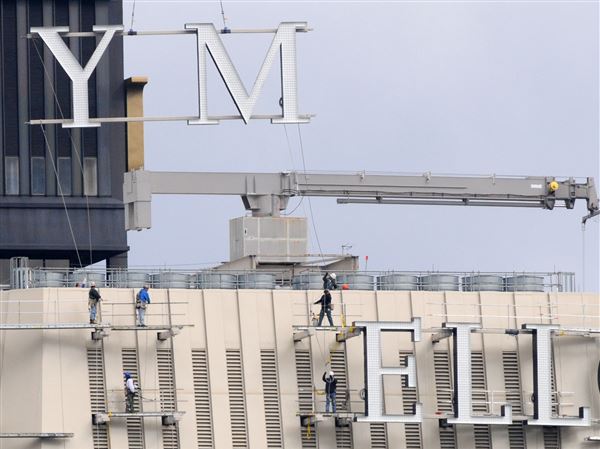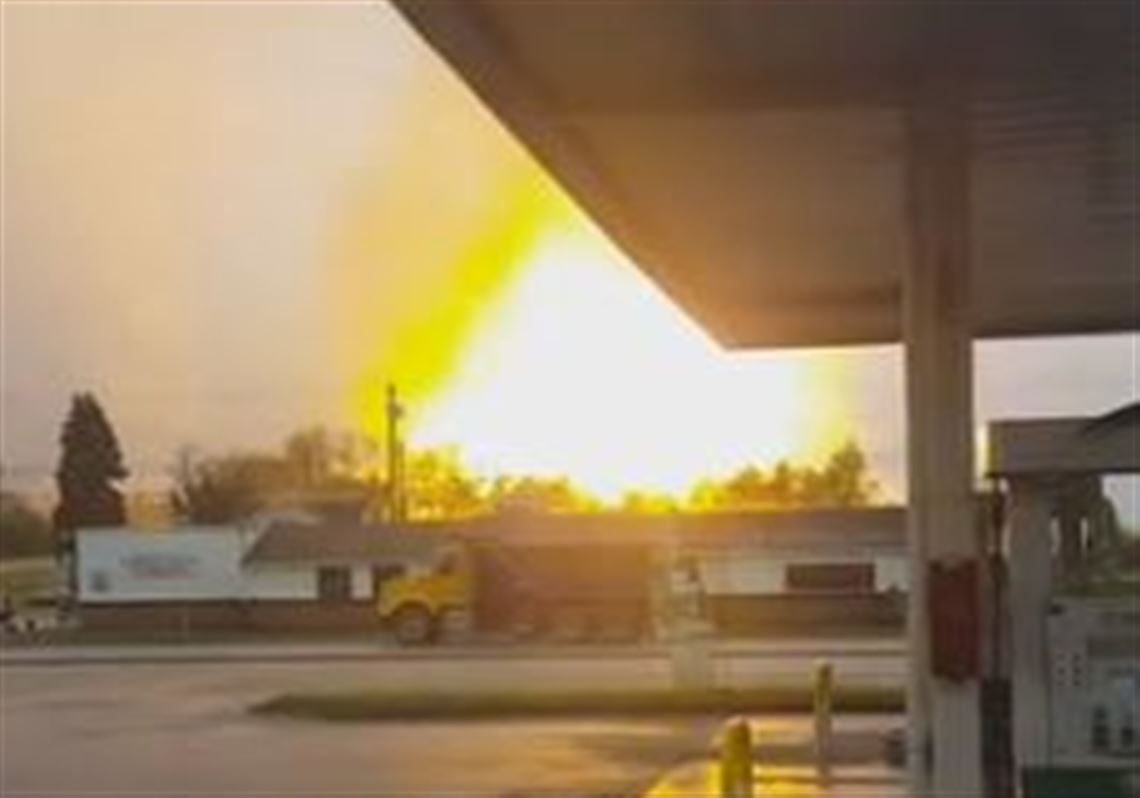Tracy Maschik lives just a quarter-mile from where a Texas Eastern gas transmission line exploded in a a massive fireball April 29 in Westmoreland County.
It was so close that she could feel the heat through her bedroom walls in Salem, so close her husband was knocked out of his chair in his home office and suffered a concussion.
“The heat was intense. We inhaled the odors, and I am concerned problems are going to keep showing up for the next year,” she said at a community meeting Wednesday night attended by more than 200 people who jammed into the basement of the Congruity Presbyterian Church in New Alexandria.
Many in the crowd voiced a variety of concerns about health, safety, travel restrictions around the site of the blast, and the length of time it took Spectra Energy, which operates the pipeline system for Texas Eastern, to shut down the gas flow in the ruptured line.
Randy Putt, Spectra’s local area manager, apologized to those in attendance, called the blast “unacceptable,” and said that although the investigation of its cause is ongoing, preliminary findings point to problems with a tape sealant that failed around pipeline welds.
Tom Wooden, Spectra vice president of operations, said federal, company and independent investigators are still working to positively identify the cause of the massive explosion in the 35-year-old, 30-inch pipeline.
The resulting blowtorch-like fire in Salem scorched 40 acres, melted a roadway, destroyed several homes and severely burned one man.
Shortly after the explosion investigators identified two areas of corrosion on the exterior of the pipeline in the area of the blast.
Two environmental groups that watch the construction of pipelines to service the shale gas industry have theorized that a more powerful compressor station that began operating at the end of 2014 a mile and a half upstream from the explosion site could have caused internal corrosion that weakened the pipeline. Spectra officials have discounted that theory.
Ron Niziol, who inspects the welds on pipelines like the one that blew up, said there’s no inspection of the weld coatings.
“Nobody looks to see if the weld is adequately covered,” he said
The U.S. Department of Transportation’s Pipeline and Hazardous Materials Safety Administration said Wednesday afternoon that its investigators are looking at all aspects of Texas Eastern’s operations, “including all changes, upgrades, and modifications to their pipeline system.”
Don Hopey: dhopey@post-gazette.com or 412-263-1983.
First Published: May 12, 2016, 1:52 a.m.

















